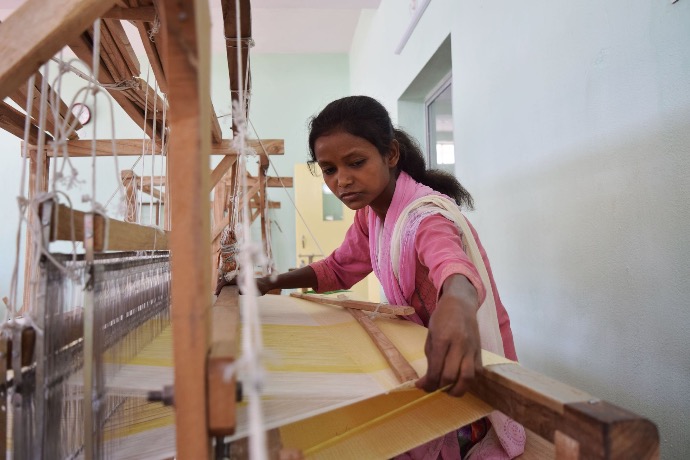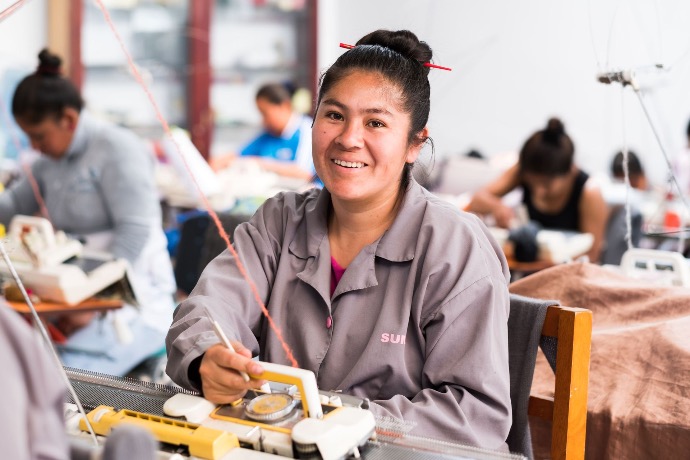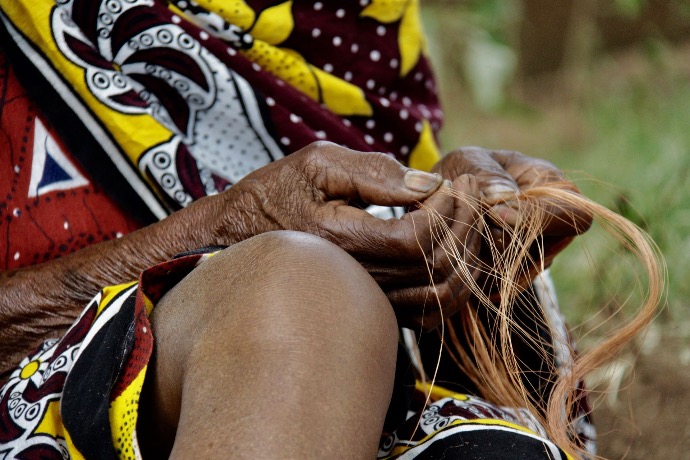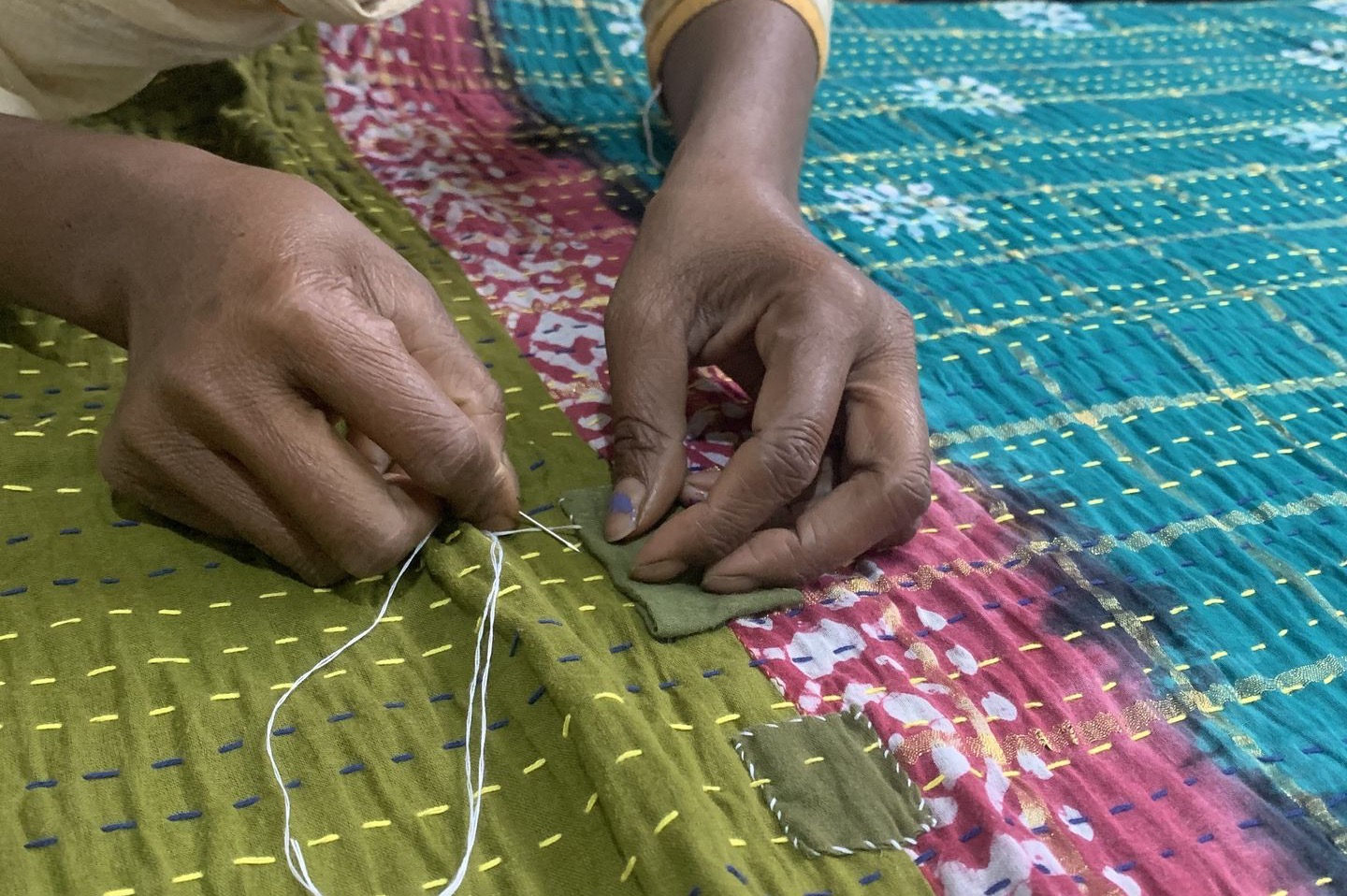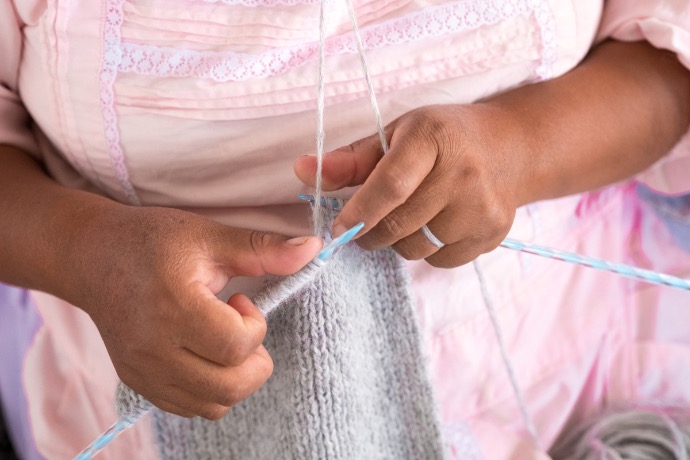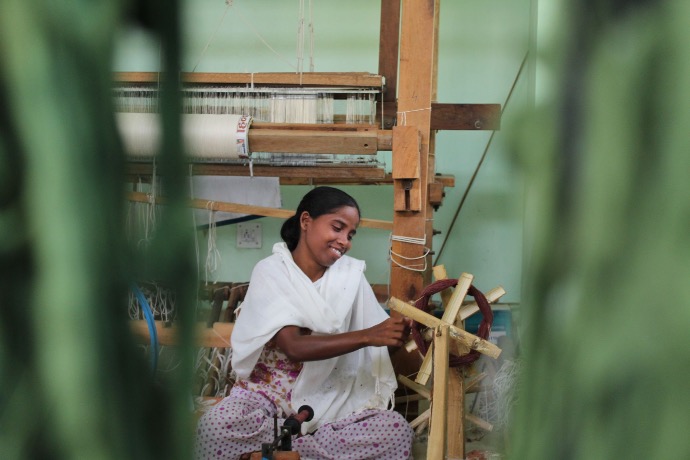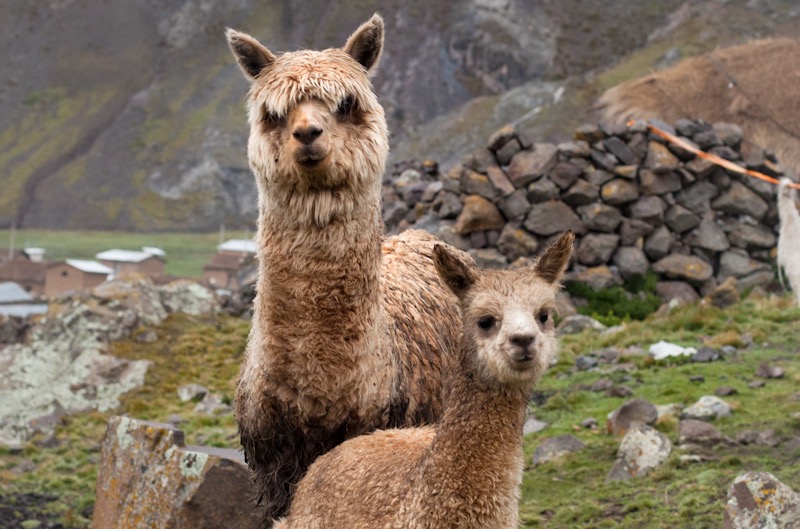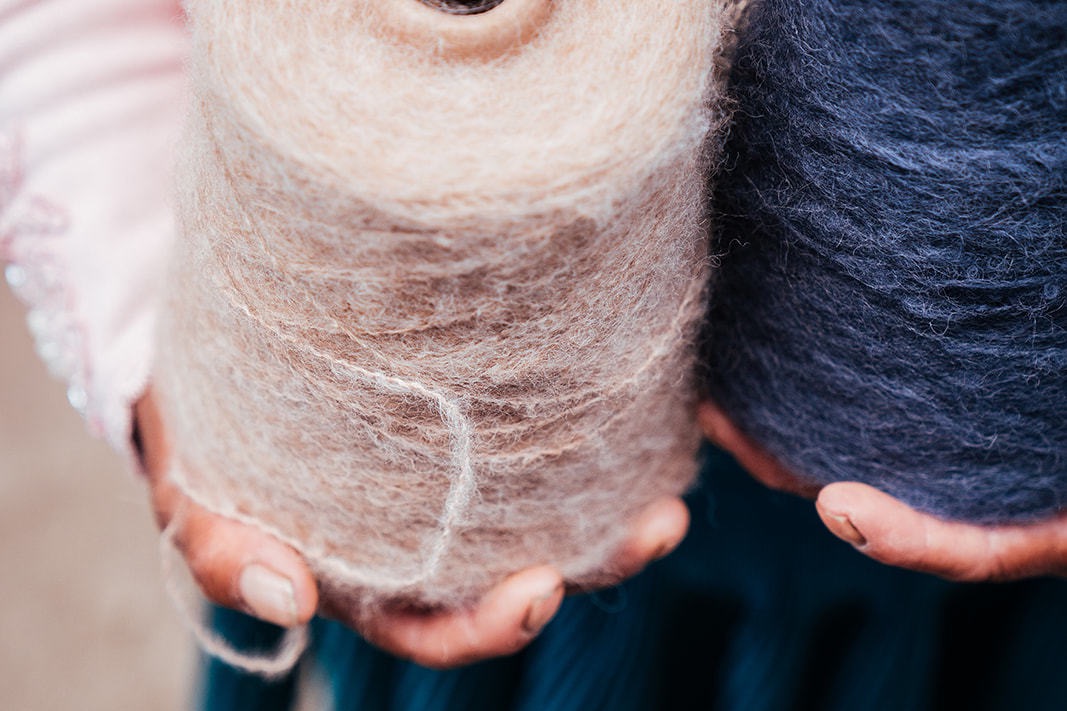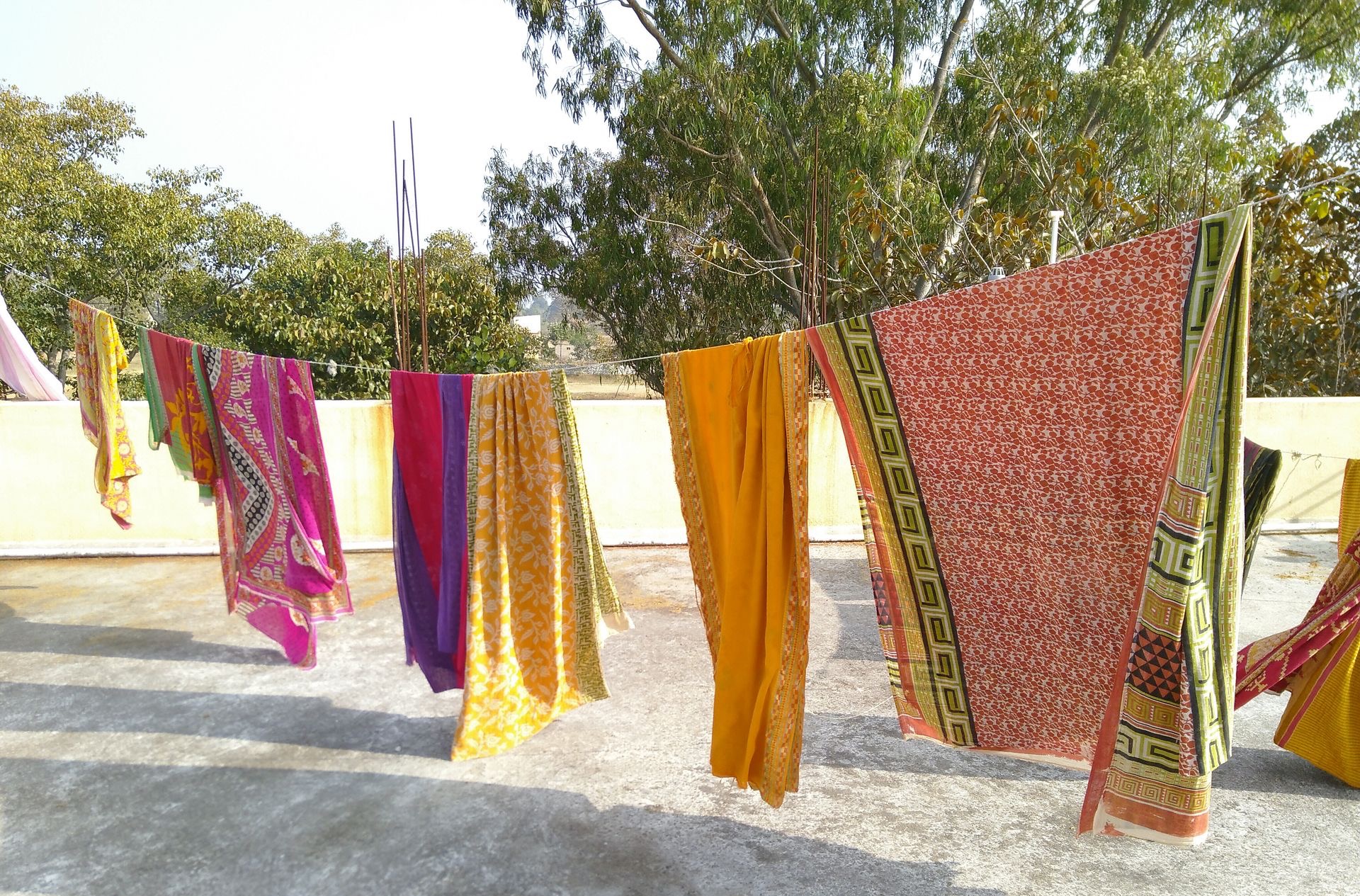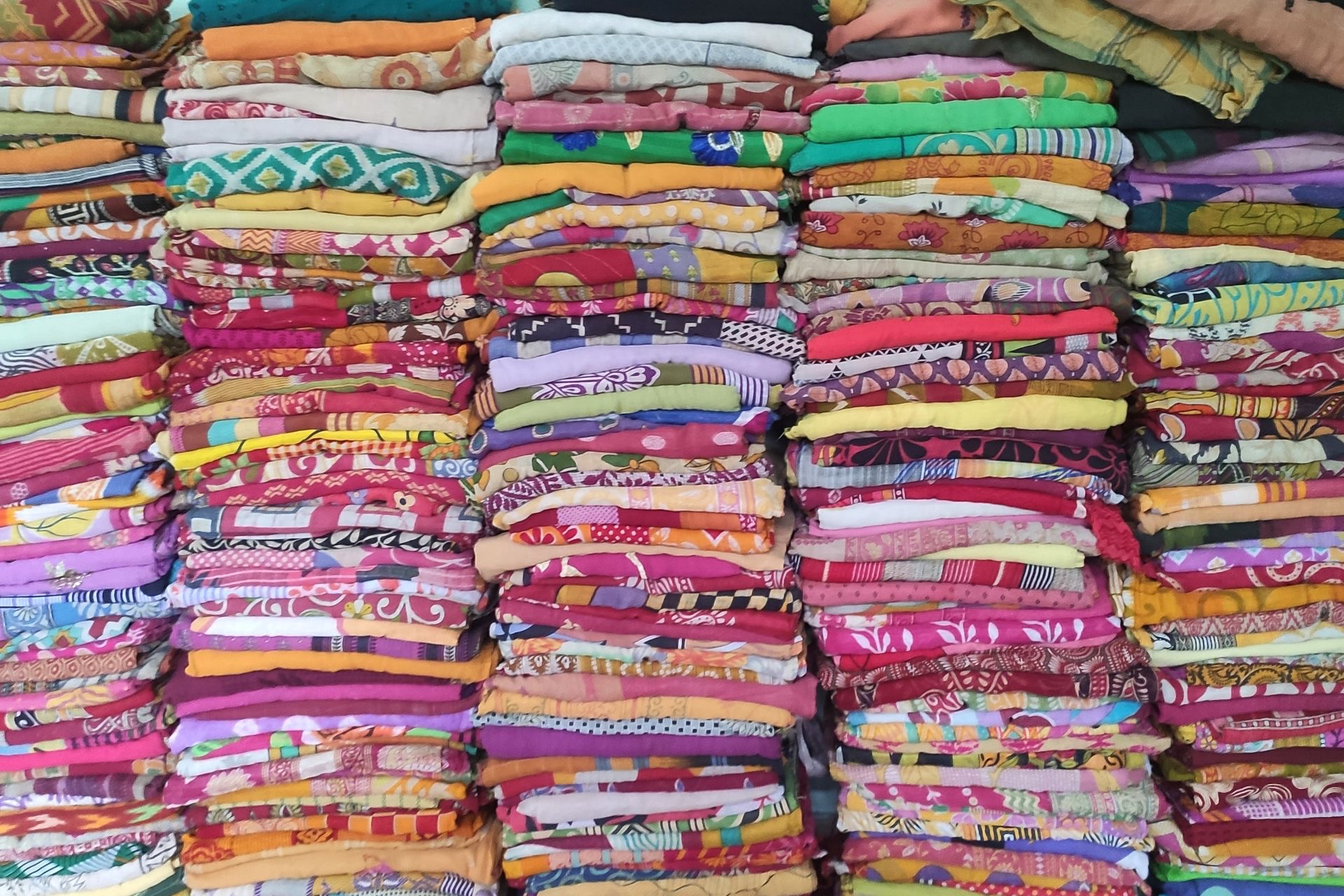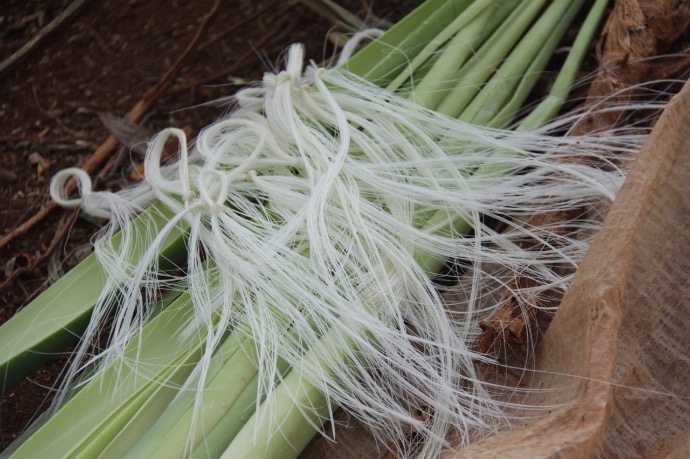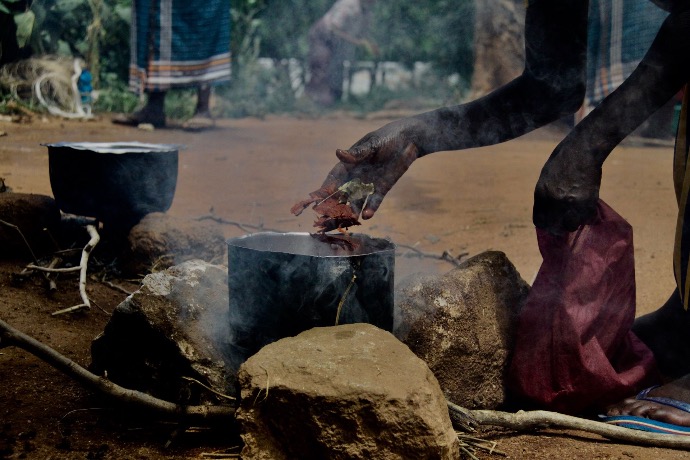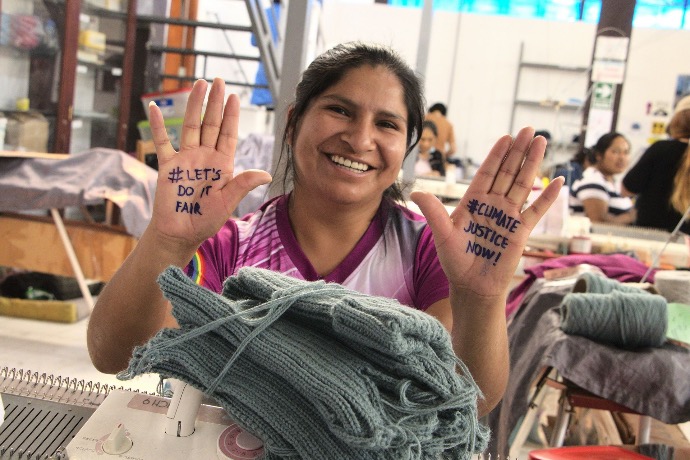Minimising carbon footprint
Solid is a social enterprise that operates worldwide. At Solid we
have set a target: carbon neutral shipping by 2025. 100% of our
shipping will happen by sea. Nonetheless, also sea transport has
its environmental impact which we cannot avoid. We will
compensate our own air and sea emissions through carbon
offsetting. Solid also offers every client to compensate their
emissions.
Low energy use
Handicraft is # by the use of basic tools and
traditional techniques, with low environmental impact. Most
machines used in production are human-powered, meaning
that overall electricity consumption is kept very low. Electricity
is primarily used for the few irons, steaming or sewing
machines, lighting in winter months and for computers used by
the team. Water consumption is also low as it is only occasionally
used in production for washing or steaming.
Recycled and locally sourced materials
The materials used in Solid’s products are locally sourced, both
to promote sustainable local industries and to minimise
transportation emissions.
Reducing the use of plastic packaging
There’s a lot of plastic when talking about packaging. And that’s
not okay with us. We’ve set ambitious targets to reduce the total
amount of plastic we use, and to change to recyclable or
degradable packaging. We are currently comparing new
sustainable packaging options with the materials we are using
so far. Using oxobiodegradable or biodegradable packaging,
reduces our carbon footprint considerably, in comparison to
standard disposable packaging. But cutting excessive packaging
is by far the best option. Each client has the opportunity to opt
for a reusable bag and to pack as many pieces together in one
the use of plastic.
Repair guides
At Solid we create products with a sustainable vision. Social
impact intertwines with environmental action. By doubling the
life of your clothes through mending you reduce emissions by
24%. In 2021 we launched a Repair guide for our up-cycled
Kantha jackets, to help you reduce your footprint.
At Solid, we will compensate our air and sea emissions through carbon offsetting, via Wildlife Works (REDD+) , as we have a direct link through our partner Hadithi, in Kenya, who is part of Wildlife Works. These certified projects focus on protecting threatened forests and wildlife by uplifting rural communities in Kasigau, Kenya. The essence of their conservation strategy is based on long-term job creation. Jobs that create a viable alternative for local people, and replace unsustainable sources of income such as poaching, subsistence agriculture and illegal tree harvesting.
Low energy use
Materials
Peru
In our knitting workshop we use a broad range of ecological, organic, and sustainable Peruvian yarns. Peru has some of the best natural fibers in the world, like baby alpaca and pima cotton. Building on a good collaboration with local yarn suppliers and artisanal dyeing units, we can offer a very broad range of yarns from purely natural to customized specialty yarns, fitting every need. We can offer undyed yarn, as both cotton and alpaca are available in a variety of natural, earthy tones. In alpaca alone, there are a whopping 22 shades, from dove grey through champagne to beige. In 2020, extra attention within the team was given to the alpaca supply chain. The development of RAS (Responsible Alpaca Standard) is followed closely with our suppliers and clients. If all goes well this will be launched in 2022.
India
In India we focus on upcycling local vintage sari fabrics. Our artisans transform these saris in the most beautiful garments and homeware products with their own two hands. Any cotton stitch used is organic.
Kenya
In Kenya , the organic materials are primarily locally grown sisal and palm leaves. The majority of the natural coloured baskets are woven with twine that is boiled with natural dyes - from roots, tree barks or leaves,... All the bright vibrant colours in the baskets are made with twine that is home-dyed with dyes purchased by the artisan after receiving a training on dyeing, ensuring the artificial colouring is re-used for a second and third batch of sisal, and the wastewater is disposed of safely.
For the handles we locally source leather, made from goat skin picked up from the local abattoir, and tanned by our leather craftsman himself in a small-scale tanning process at his workshop.
Repair guides
At Solid we create products with a sustainable vision. Social impact intertwines with environmental action. By doubling the life of your clothes through mending you reduce emissions by 24%. In 2021 we launched a Repair guide for our upcycled Kantha jackets, to help you reduce your footprint. Through explanations and videos, we guide you in repairing small issues yourself. Because mending your clothes is
an
experience, an essential skill for a sustainable future. It offers you satisfaction and adds your own story to your loved, unique pieces. “Create your own tale through visibly mending your clothes.”
